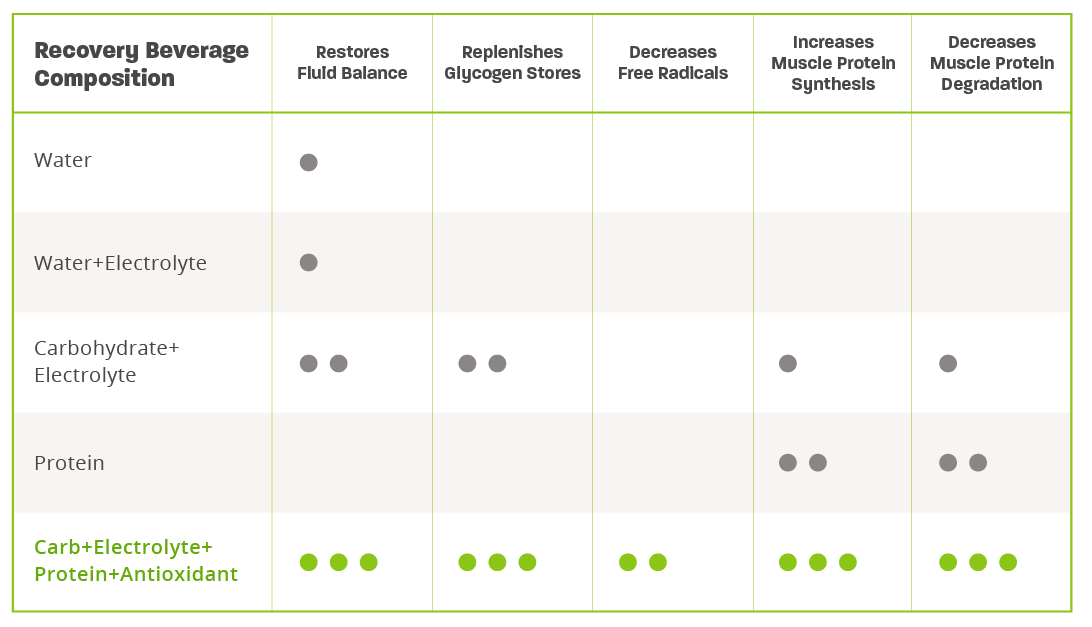
Come Back Stronger
Few areas have of science have undergone as dramatic a change in thought and practice as post exercise nutrition. Over the last 15 years, science has shown that recovery nutrition should be an essential part of the exercise regimen for athletes at all levels, professionals to weekend warriors, in all sports. Endurox® R4®, with its patented 4:1 carb- protein ratio revolutionized the science of muscle recovery.
The impetus for recognizing the role recovery plays in enhancing exercise performance was the publishing of Nutrient Timing by Drs. John Ivy and Robert Portman. The authors showed that specific metabolic pathways are activated in the 45 minutes after exercise. Consuming the right combination of nutrients during this recovery window can dramatically improve the quality and strength of muscle recovery.
Muscle Conditions Following Exercise:
- Depletion of muscle glycogen stores
- Increase in free radicals, or oxidative stress
- Decrease in muscle protein synthesis
- Increase in muscle protein degradation
- Decrease in plasma volume as a result of fluid loss

Ideally the best recovery beverage should address all of these conditions but as shown in the table below many do not in spite of their widespread use following exercise. The most important factor to keep in mind when selecting the type of recovery drink is during the recovery window following exercise the metabolic pathways responsible for rehydrating rebuilding, repair and replenishment are activated. All that is needed is the right nutrient combination. The right nutrient combination consumed in the recovery window can significantly impact the rate, completeness and speed of recovery, and this translates into a better workout the next day.

The effect of carbohydrate consumption after exercise is probably one of the most well-known and documented observations. If we deplete our muscle energy stores during exercise, it stands to reason that consuming carbohydrates will replenish these stores levels. However, the effects of recovery nutrition on muscle protein repair and oxidative stress have not been so clearly defined.

We now know that protein synthesis is controlled by an important signaling pathway and, as biochemists have defined this pathway, they have shown why certain combinations of nutrients expedite muscle repair. This key signal pathway is activated via two mechanisms. One involves insulin and the second involves the amino acids, with leucine being the key one. Activating both mechanisms results in a significant increase in protein synthesis, which translates into a faster and more complete muscle recovery. That’s why a carb/protein ratio (ideally 4g of carbohydrate to 1g protein) stimulates protein synthesis to a greater extent than a protein drink.
Oxidative stress is the third factor that should be addressed by your recovery beverage. Free radical levels are highly reactive molecules that can damage muscle fibers and other important cellular components. Following exercise there is an enormous increase in free radicals. Your recovery beverage should contain powerful antioxidant such as vitamins E and C to reduce radical formation, thereby reducing muscle damage. A recent study gives added importance to vitamin E. Vitamin E also plays a critical role in the repair of muscle membranes damage after exercise.



